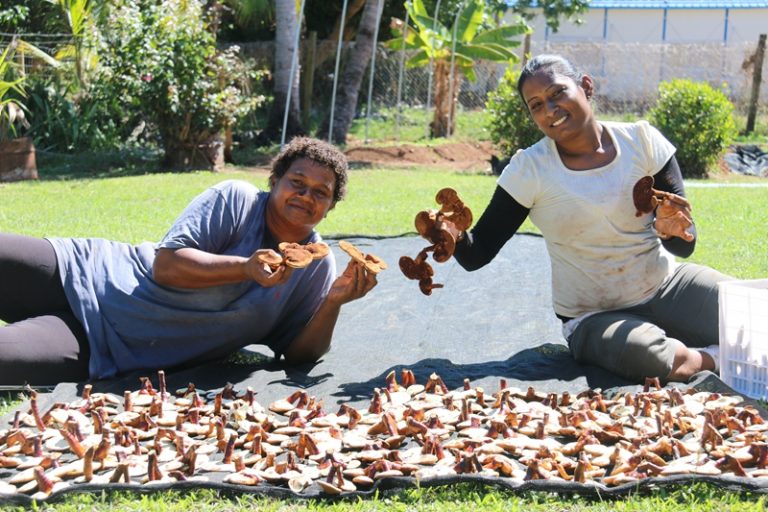
By Lin Dongmei
At the recent 8th annual Multi-Stakeholder Forum on Science, Technology, and Innovation for the Sustainable Development Goals, a farmer named Freda Korarome from Papua New Guinea (PNG) shared her story of fighting poverty with assistance from technology.
From the deep mountains in PNG’s Eastern Highlands to the UN headquarters in New York, she told her fantastic journey with the Juncao technology to the world, a wonderful experience she could not imagine before.
Juncao, which means “mushroom” and “grass” in Chinese, can be used, as its name suggests, to grow edible mushrooms as livestock feed or as a green barrier to stop desertification. It is hailed by many as “magic grass.”
As a female representative of the beneficiaries of the Juncao project of the China-UN Peace and Development Trust Fund, Korarome was the first Juncao grower to deliver a speech at the UN headquarters.
She said in the speech that after receiving technical training and guidance from Chinese Juncao experts, she employed 25 people in her village to grow Juncao, most of whom were females. She would sell 200 kilograms of fresh mushrooms weekly to local dealers. Soon she earned money, building a new house and buying a new car for her family.
In cooperation with Chinese experts, the woman has offered training sessions for more than 1,500 people in 10 surrounding villages. The Juncao technology has increased local farmers’ income and lowered the community’s malnutrition rate from 70 percent to 55 percent, she noted.
Her story has inspired people around. According to Korarome, people call her every day to congratulate her success and to learn the Juncao technology.
The Juncao technology marks a successful practice of China in promoting poverty alleviation, as well as an essential contribution made by the country to the sustainable development of the world.
Juncao is a sound substitute for timber to be used as a substrate for growing edible mushrooms. It has solved the problem troubling the world: trees must be cut down to produce edible mushrooms. So far, the technology has been applied in over 100 countries.
I serve as the deputy director of the China National Engineering Research Center of Juncao Technology. Over the past 20 years, I have met many women like Korarome.
After learning the Juncao technology, they became entrepreneurs and sci-tech workers. I see from them the strong aspiration of women in developing countries to eliminate poverty and embrace happiness, as well as the essential role played by the Juncao technology in increasing the well-being of people, especially in improving the living environment for women.
I first realized that the Juncao technology could be life-changing for impoverished women when I worked in KwaZulu-Natal Province, South Africa, in 2005.
In the province, there were many single mothers and grandmothers. They were poor in land and education, living on a meager income from government jobs.
A Chinese idiom goes that giving a man a fish feeds him for a day, but teaching a man fishing feeds him for a lifetime. After learning the Juncao technology, these women saw their income increase. They could afford their children’s schooling, opened groceries in villages, and even started a logistics business, which completely changed the lives of themselves and their families.
The UN 2030 Agenda for Sustainable Development includes 17 sustainable development goals, and the Juncao technology serves 13 of them, including gender equality. In many developing countries, technology can not only lift women’s social status but also serve as a demonstration that helps improve local productivity and economic vitality.
Under the guidance of Chinese experts, some women in Fiji, especially those with disabilities, have embraced a better life by growing Juncao. Among the nearly 2,000 people trained by the China-aided Juncao demonstration center in Fiji, women and people with disabilities account for 56.7 percent and 4.8 percent, respectively.
Arailde Fontes Urben, a Brazilian Agricultural Research Corporation professor, has contributed to promoting the Juncao technology in South America.
Since she joined a training program on the Juncao technology in China in 1995, she has always been committed to the research and communication of the technology in South America. The expert, now in her 70s, has trained over 2,000 people and translated a Chinese Juncao textbook into Portuguese, published in Brazil.
Developing the Juncao technology would benefit the whole of humankind. China’s Juncao has blazed a trail of sustainable development for the world.
It is believed that more and more women, who are indispensable for developing the industry, will realize their dreams with the Juncao technology.










